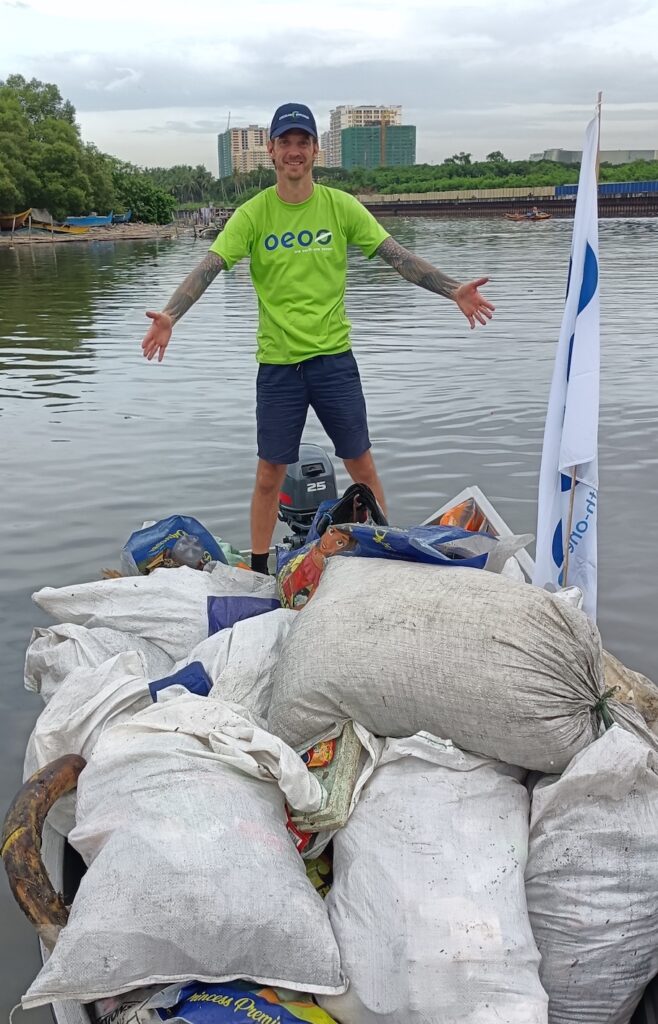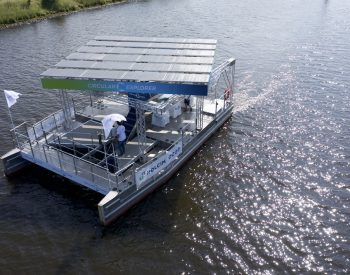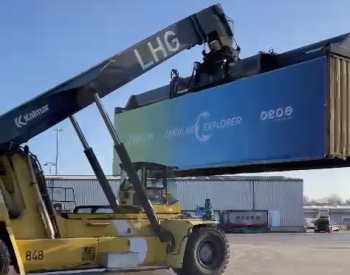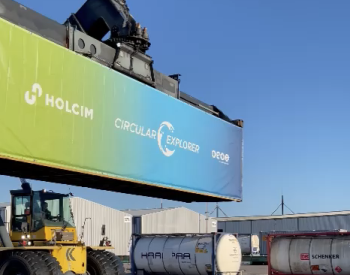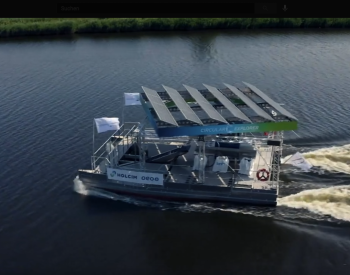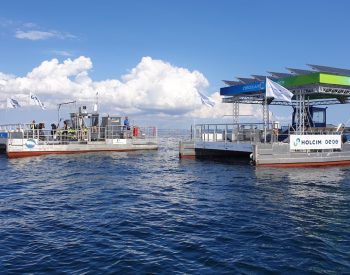oeoo in the Philippines
18. October 2021 2023-07-02 13:45oeoo in the Philippines
In early 2022, oeoo launched a new cleaning, recycling and environmental education project in the Philippines using our new solar-powered waste collection boat Circular Explorer. The project sponsor is Holcim from Switzerland, a global building materials company.
First Activities
The ‘Circular Explorer’, oeoo’s solar-powered waste collection boat, survived the long journey in a container from Kiel to Manila in one piece, the assembly in April 2022 went smoothly and according to plan thanks to the support of the “Asia Pacific Marine” shipyard and the “oeoo-Dream Team” Manfred, Jan and Piet.

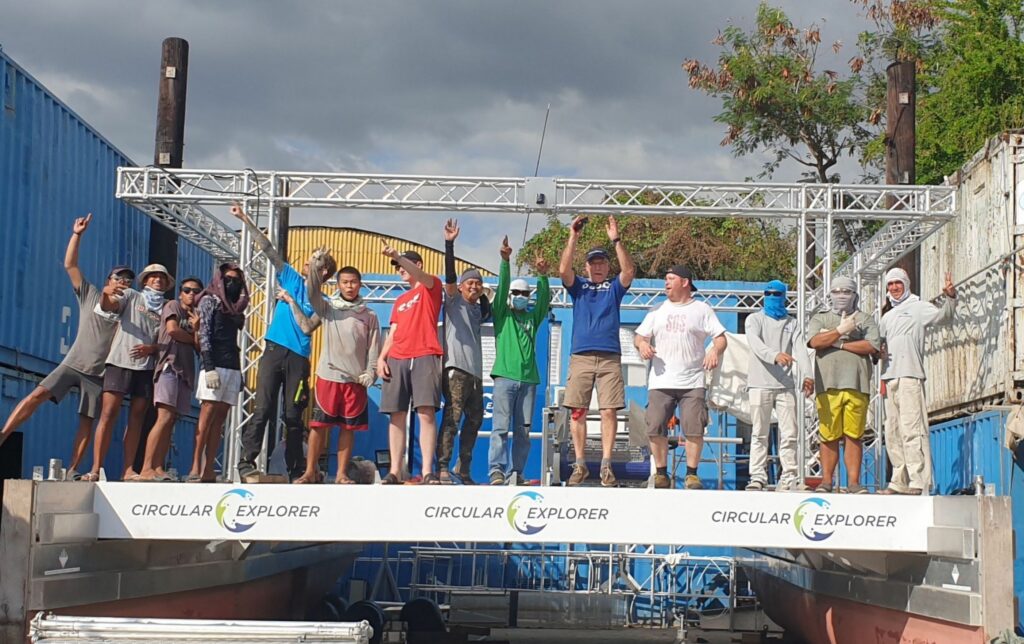
For the dismantling and safe, damage-free packing of the Circular Explorer into four overseas containers for transport from Lübeck to Manila, we were able to rely on the professional help and experience of the companies INTAKT Transportberater e. K., Cordstrap and SIBT.
Jan-Peter Saul and Piet Schöne from the INTAKT team were on hand with energetic help both during the dismantling of the CE in Lübeck and the assembly of the catamaran in Manila.
Reiner Gohlke from Cordstrap advised us on the selection of the worldwide transport service providers up to Manila and Sven Tiedemann from SIBT was responsible for the professional packaging and safe transport of the batteries of the CE, which are considered dangerous goods. Many thanks again to all three companies! Thanks also to your help, the Circular Explorer can now start its work in Manila.
In the meantime, project manager Daniel Scheler from oeoo has already visited some potential recycling partners on site with Nils Liebich from Holcim. In addition, the production facilities of the partners Holcim and Geocycle Philippines, part of the global waste management business of the Holcim Group, were visited and important networks were established.
In Manila Harbour are the four empty overseas containers from oeoo, with which the individual parts of the Circular Explorer were transported to the Philippines. There, Daniel and his team will – at least for the time being – temporarily store the collected and sorted plastic waste from the Circular Explorer and from there transport it for recycling.
The photo shows our three Filipino team members Joey, Joel and Laine with Daniel, Manfred and Nils on the Circular Explorer. They support Daniel on the ground in Paranaque with community work, research and actions like our first cleanups.
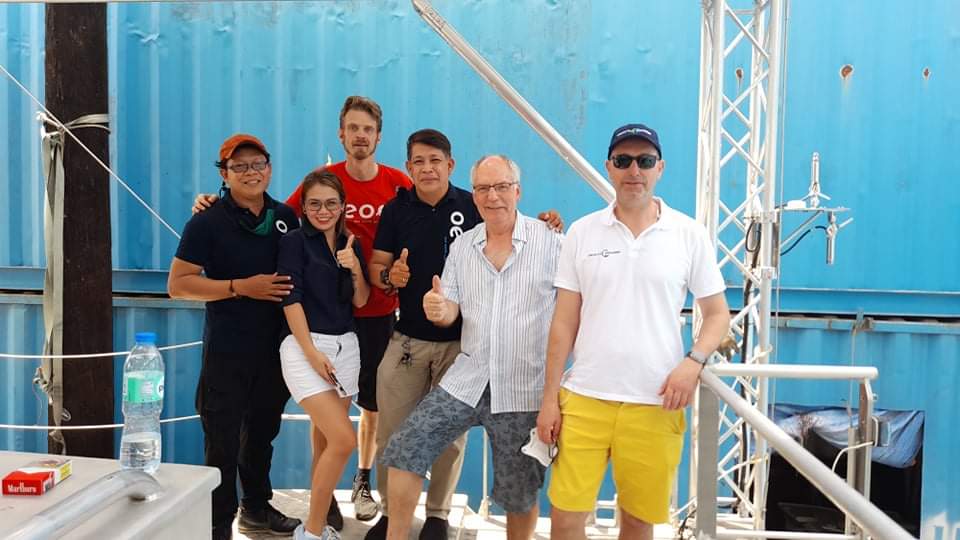
On “Freedom Island” off Paranaque, where oeoo has already organised the first cleanups, the first actions are to start in Manila. The team is also busy networking and working in the community to obtain the necessary permits. In the Philippines, too, you have to plan a lot of time for bureaucracy.
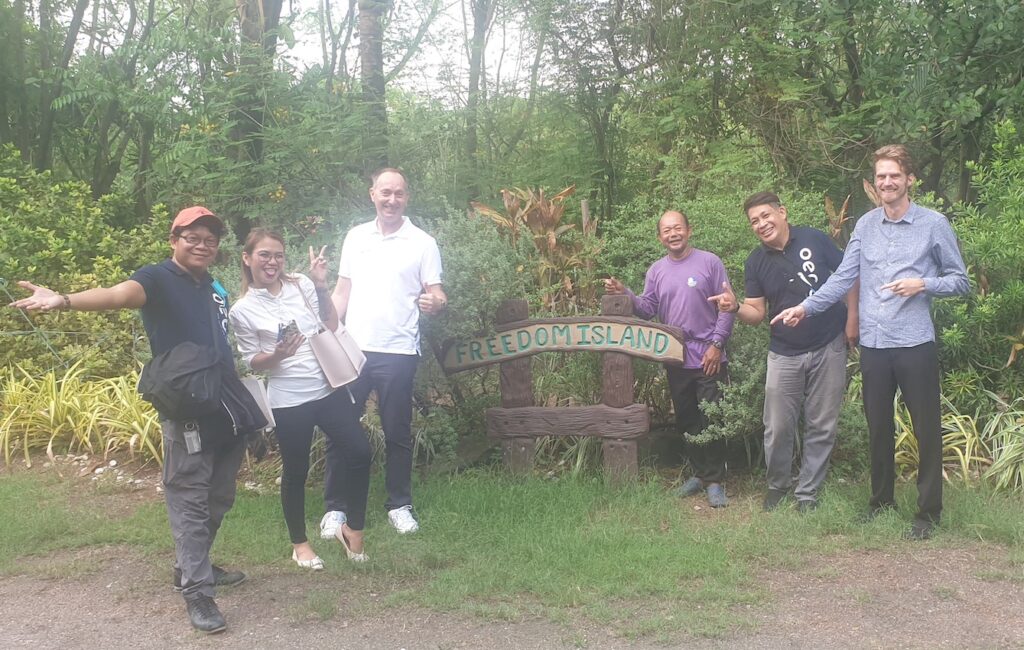
The three-year waste collection, education and science project is funded and supported by Holcim.
Manila Bay forms a huge natural harbour with a total area of 1,994 km² and a coastline of 190 km. For years it has been extremely polluted, on the one hand by (plastic) rubbish floating on the water surface, but also by untreated sewage. Waste is simply dumped into the bay. This is why it is considered one of the most polluted places in the Philippines.
As recently as October 2021, The Guardian reported on the catastrophic pollution of the coastal mangrove forests, which are being buried under plastic waste and threatened with extinction.
Since 2018, the government has been enforcing more consistent and stringent controls. Illegal settlements, businesses and hotels whose waste and sewage pollute the bay are prosecuted or closed. Rubbish collection campaigns by NGOs and volunteers receive support from government agencies. But the current situation is not yet satisfactory and requires greater efforts from all sides.
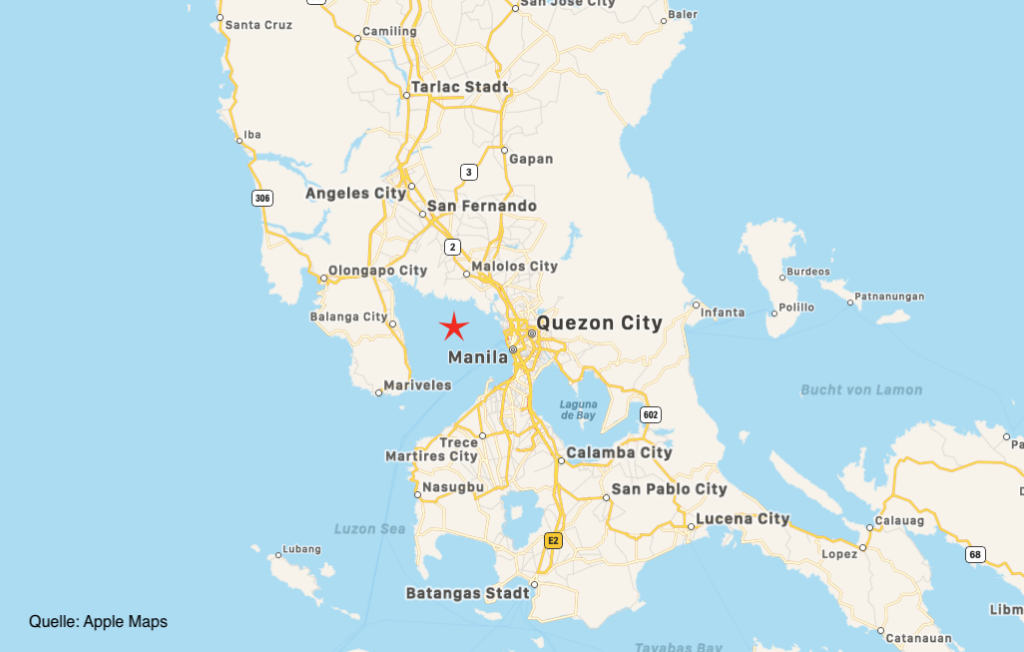
Cleanup action of Parañaque River in Manila, in collaboration with Siemens Gamesa, local fishermen from Bulungan Fishing Port, and residents.
A total of 33.6 tons of plastic waste were collected in just 7 days.
Interview with Daniel Scheler - Project Manager in the Philippines
Daniel, you are the project manager of the new cleaning project in the Philippines that oeoo will start together with Holcim. When does it start?
Strictly speaking, the project has already started in the summer of 2021. The Circular Explorer was ceremonially christened in Hamburg’s museum harbour in the summer and put through its paces on the Baltic Sea in recent months. However, the planned work in Manila will not start until January 2022.
How did the Circular Explorer end up in Manila Bay? And why did you choose this particular location?
Manila Bay is one of the most polluted bodies of water in the world. Plastic inputs into the ocean are very high here and something needs to be done immediately to change the devastating situation on the ground. For this reason, from the end of October 2021, the Circular Explorer will be dismantled into its modules, packed into containers and shipped to Manila, where it will be reassembled by a technical team on site.
What will be your job in Manila? Are you the captain? Who will work on site?
The three focal points of the new project are maritime waste collection, i.e. the collection and sorting of plastic waste, as well as education and science. As project leader, I am responsible for coordinating the overall project and focusing on the set priorities.
On site, I will certainly also take on the tasks of a captain at first. For I will teach local captains how to steer this unique ship with its special propulsion both efficiently and safely.
In addition to the local captains, we will hire additional, exclusively Filipino staff to help with sorting the rubbish and with administrative and clerical work.
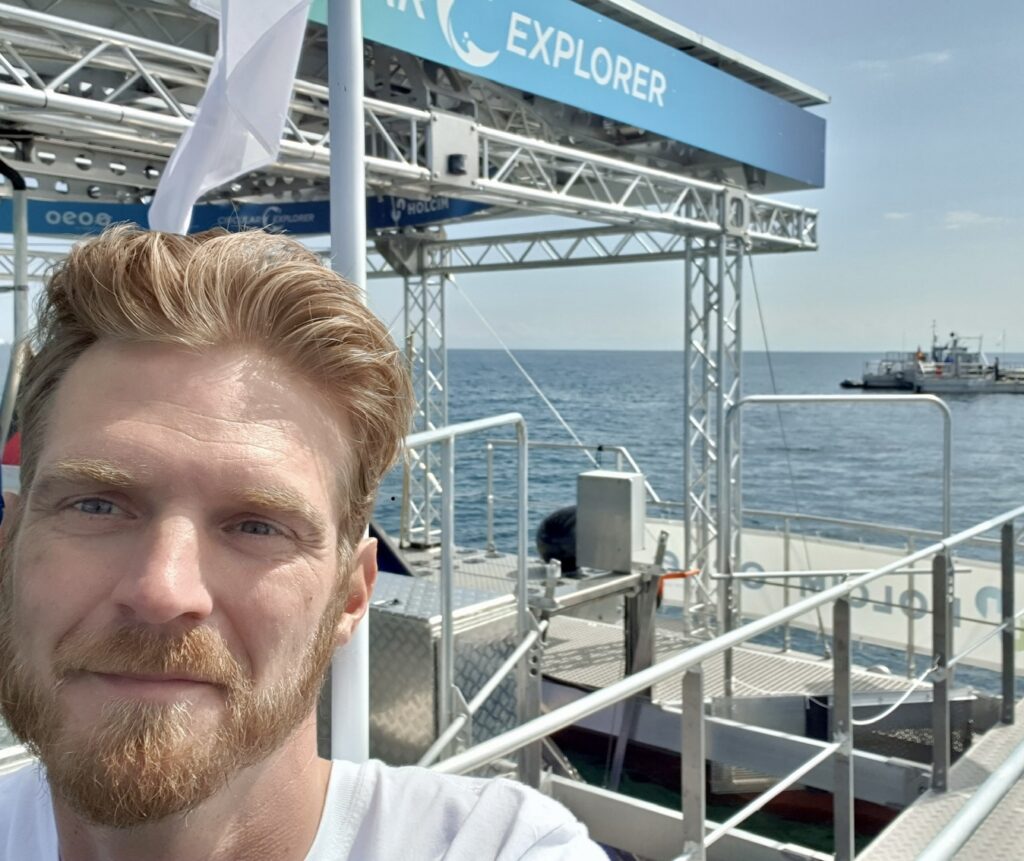
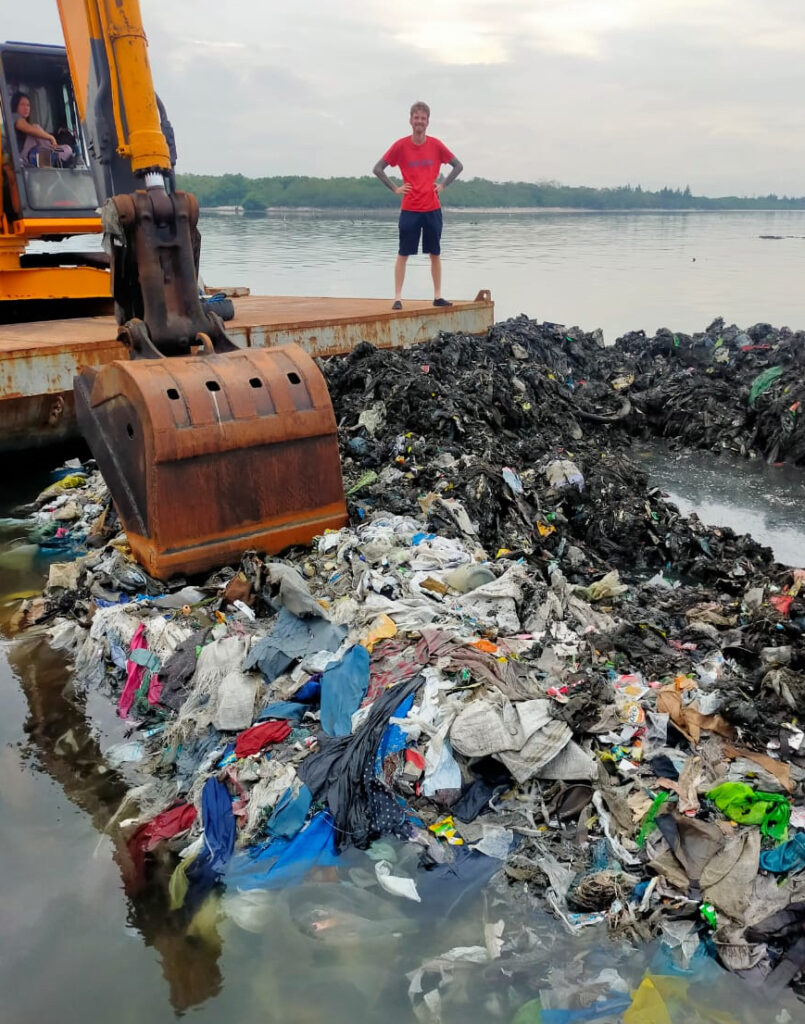
How long does the project last and what is the goal?
Our goal is to intercept as much waste as possible on its way to the ocean and put it to good use. But an even more important goal is to find ways to bring us closer to a circular economy. Because that’s the only way we can really be part of the solution.
The funding for the project is in place for a period of three years. I hope we can find more funding beyond that, because it will take far more than 3 years to completely rid Manila Bay of plastic.
The Circular Explorer is to become the flagship of an entire local collection fleet. The Circular Explorer will also transport a particularly large sea hamster to Manila. What other ships are planned?
As part of the globally operating Maritime Waste Collection, Circular Explorer and the large Sea Hamster form a local team, which can be expanded by additional ships at any time. The bigger the fleet, the more we can achieve there.
A first elephant seal to support the entire Maritime Waste Collection would be an even bigger step in the right direction. This goal seems to be within reach. I hope that very soon other companies will follow Holcim’s example to build more ships with us. Because this is the only way we can actually create something great, by talking less and implementing more!
In this project, for the first time, not only rivers are cleaned, but open water. What are the technical differences to the oeoo projects so far?
In contrast to the previous projects, this time we are working across the entire width of the ship with so-called “deflectors” (these are special guide plates), a conveyor belt and a large sorting table. This way we can collect and sort up to 4 tonnes of plastic waste per day.
The Circular Explorer is very flexible due to its shallow draft and can be used on open waters, inland waters and on the beach to collect waste. It is also used as a platform for education, science and networking events.
What happens to the plastic waste that is collected there? Do you only collect on the water or also on the beaches?
The waste is sorted by our trained staff on board and loaded into big bags. This makes it easier to unload and transport. If necessary, we can process the rubbish further on land before handing it over to trustworthy recycling companies. One of these companies, for example, makes school furniture from the plastic waste.
Thank you Daniel and have a good start in Manila!
